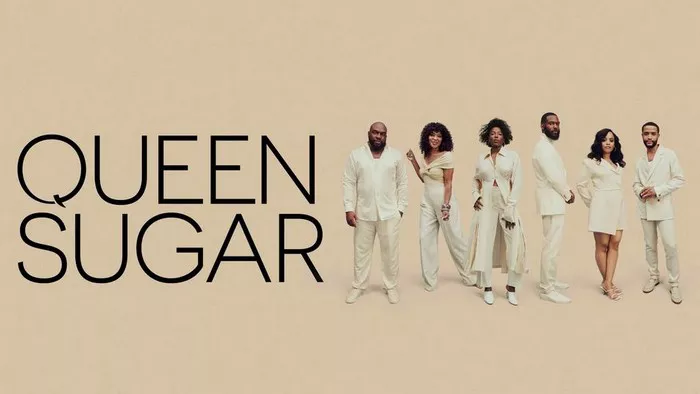In the ever-expanding landscape of television streaming platforms, captivating storytelling often emerges as the cornerstone of success. Among the plethora of offerings, “Queen Sugar” stands out as a shining example of nuanced narrative craftsmanship. Created by Ava DuVernay and based on the novel of the same name by Natalie Baszile, this compelling drama series has garnered widespread acclaim for its rich character development, socially relevant themes, and visually stunning cinematography. Available for streaming on both Netflix and Hulu, “Queen Sugar” has captivated audiences worldwide, sparking discussions on issues ranging from family dynamics to racial injustice. In this article, we delve into the multifaceted brilliance of “Queen Sugar,” examining its thematic depth, character intricacies, and impact on contemporary television.
Ava DuVernay’s Vision: Crafting a Tapestry of Authenticity
At the helm of “Queen Sugar” is the visionary filmmaker Ava DuVernay, whose commitment to authentic storytelling shines through every frame of the series. Known for her poignant exploration of social issues, DuVernay infuses “Queen Sugar” with a raw and unflinching honesty that resonates with viewers on a profound level. From the lush landscapes of rural Louisiana to the intimate moments shared between characters, DuVernay’s meticulous attention to detail elevates the viewing experience, transporting audiences into the heart of the narrative.
Navigating Complex Themes: Family, Identity, and Legacy
At its core, “Queen Sugar” is a story about family – its complexities, its joys, and its struggles. The Bordelon siblings – Nova, Charley, and Ralph Angel – find themselves grappling with their individual identities while navigating the legacy of their late father’s sugarcane farm. Through their interconnected journeys, the series delves into a myriad of themes, including race, class, gender, and the enduring bonds that tie families together.
One of the most compelling aspects of “Queen Sugar” is its nuanced portrayal of African American life in the rural South. By centering the narrative around the Bordelon family’s experiences, the series sheds light on the socio-economic challenges faced by marginalized communities, offering a rare glimpse into their daily struggles and triumphs. From Charley’s efforts to revitalize the family farm to Nova’s activism in the face of systemic injustice, “Queen Sugar” presents a multifaceted portrait of resilience and determination.
Character Dynamics: A Tapestry of Humanity
Central to the success of “Queen Sugar” is its ensemble cast, comprised of talented actors who breathe life into their characters with remarkable depth and authenticity. Rutina Wesley’s portrayal of Nova Bordelon, a fiercely independent journalist and activist, captivates audiences with its emotional depth and vulnerability. Likewise, Dawn-Lyen Gardner shines as Charley Bordelon-West, a savvy businesswoman torn between her aspirations and her roots.
However, it is Kofi Siriboe’s portrayal of Ralph Angel Bordelon that truly stands out, offering a poignant exploration of masculinity, fatherhood, and redemption. As Ralph Angel grapples with the legacy of his incarcerated past and strives to provide for his young son, Blue, Siriboe delivers a performance that is both heart-wrenching and hopeful, resonating with viewers on a visceral level.
Visual Poetry: Capturing the Essence of the South
Beyond its compelling narrative and complex characters, “Queen Sugar” distinguishes itself through its breathtaking cinematography, which serves as a visual feast for the senses. From sweeping aerial shots of the Louisiana landscape to intimate close-ups of characters’ faces, each frame is meticulously crafted to evoke a sense of place and atmosphere. Under the expert direction of DuVernay and her team of talented filmmakers, “Queen Sugar” transcends the confines of the small screen, immersing viewers in a world that is as beautiful as it is haunting.
Impact and Legacy: Shaping the Future of Television
Since its premiere in 2016, “Queen Sugar” has garnered widespread critical acclaim and a dedicated fan base, solidifying its place as a groundbreaking work of television art. Its unflinching portrayal of social issues and its celebration of African American culture have sparked important conversations within the industry and beyond, paving the way for greater diversity and representation in mainstream media.
As “Queen Sugar” continues to captivate audiences on platforms like Netflix and Hulu, its legacy as a beacon of excellence in television storytelling is assured. Through its compelling characters, powerful themes, and stunning visuals, the series has left an indelible mark on the landscape of contemporary television, setting a new standard for excellence in the medium.
Conclusion
“Queen Sugar” stands as a testament to the transformative power of storytelling, offering viewers a rich and immersive experience that lingers long after the credits roll. With its captivating narrative, complex characters, and profound thematic depth, the series has earned its place as a modern masterpiece, deserving of its status as a must-watch on platforms like Netflix and Hulu. As we continue to explore its multifaceted brilliance, we are reminded of the enduring impact of great storytelling in shaping our understanding of the world and ourselves.
























